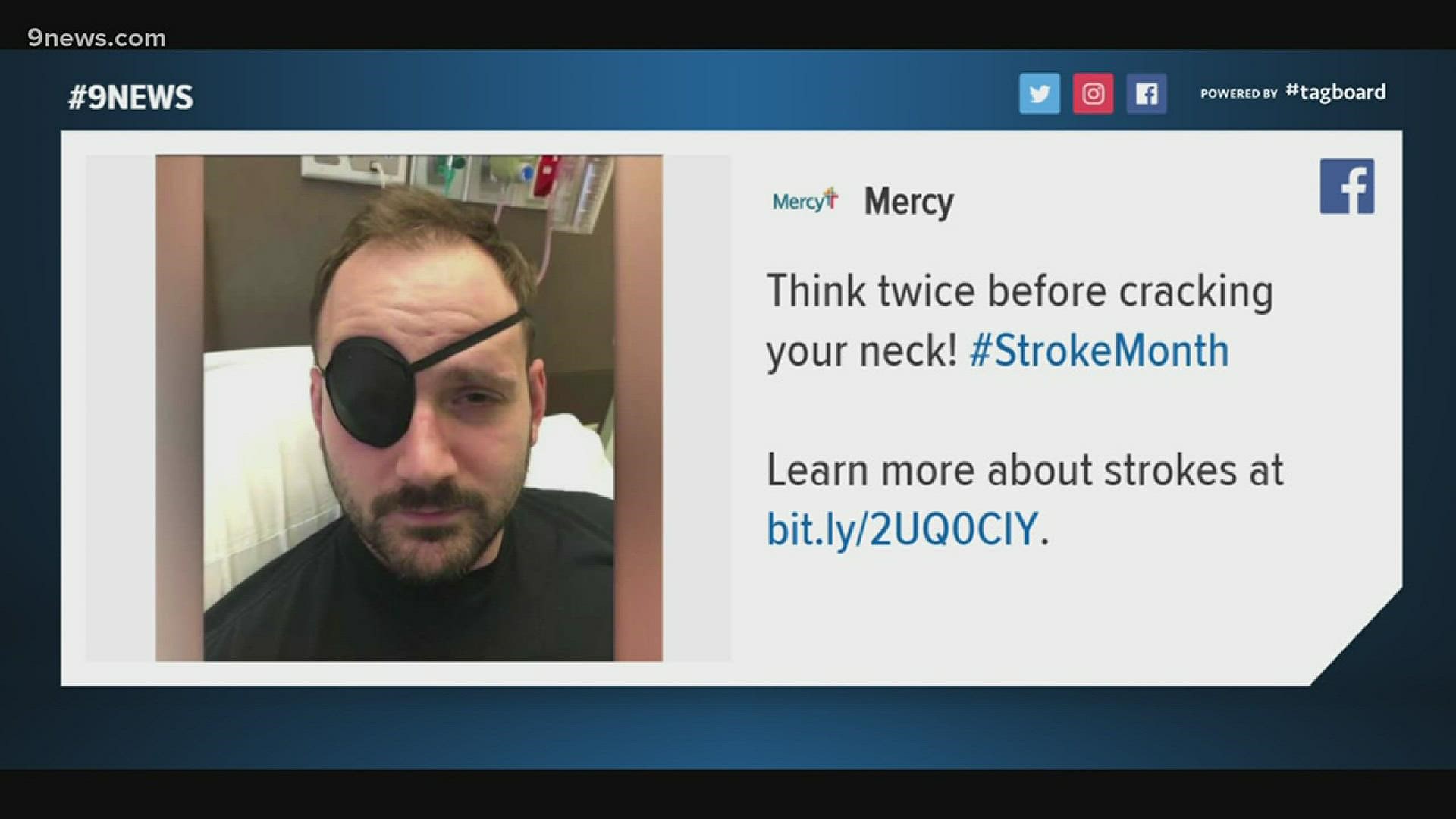DENVER — A stroke can happen to anyone at any age.
That was demonstrated in the story of Josh Hader, an Oklahoma man who was 28 years old when he popped his neck and started to feel numbness on the left side of his body.
He also experienced difficulty walking. Hader went to the emergency room, where he was immediately diagnosed with a stroke.
Below are some commonly answered questions and answers for National Stroke Awareness Month:
How does a stroke happen from cracking your neck?
Hader was diagnosed with a vertebral artery stroke. The vertebral arteries run on both sides of the neck and supply the blood and critical nutrients to the brain and brain stem. The vertebral arteries are winding in and out of the vertebrae (neck bones). When the artery tears (also called a dissection), it can cause a clot to travel and lodge in the brain, cutting off blood supply and causing a stroke.
How common is this?
This is a highly unusual event. Some people can have an underlying condition that makes them more prone to having dissections or blood clotting. Since the vertebral arteries are so close to the surface of the neck, there are case reports of people getting their necks manipulated, getting a massage, even playing golf and getting a tear in the vertebral artery. The physical stress of a neck manipulation, or trauma to the neck, can also cause it. There are even reports of repetitive motion from activities like playing golf or sudden movements of the head and neck being the cause.
Why is time so critical with a stroke?
Haden's stroke affected his brain stem, which is why he was having problems with his balance and movement on the left side. Brain stem strokes can be deadly, because these blood vessels provide flow to the most crucial part of the brain. He was able to get to the ER immediately, where he was diagnosed with a stroke, and given a clot-busting drug called TPA (tissue plasminogen activator). The blood flow was restored and he is now able to walk with a cane, even though he has some deficits from the stroke.
What should people know about cracking their neck, or even getting massages and neck manipulations?
Be careful. Neck pain or a severe headache can be a symptom of a possible vertebral artery dissection. You also should be very careful when anyone wants to touch your neck. It may not be wise to have manipulations done, to severely torque your neck, or even try to do any aggressive massages or cracking your neck yourself.
What are the signs and symptoms of a stroke people should be aware of?
Remember F.A.S.T. If you your face is drooping, arm is weak, speech problems, it’s time call 911..
The American Heart Association/American Stroke Association has more resources on its website for patients, caregivers and healthcare providers. There is life after a stroke. Find out more information about resources and ways to connect with others who have experienced this life-changing event.
Follow 9NEWS Medical Expert Dr. Comilla Sasson on Facebook and Twitter. Have a medical question or health topic idea? Email Dr. Comilla at comilla.sasson@9news.com
SUGGESTED VIDEOS | Science is cool

